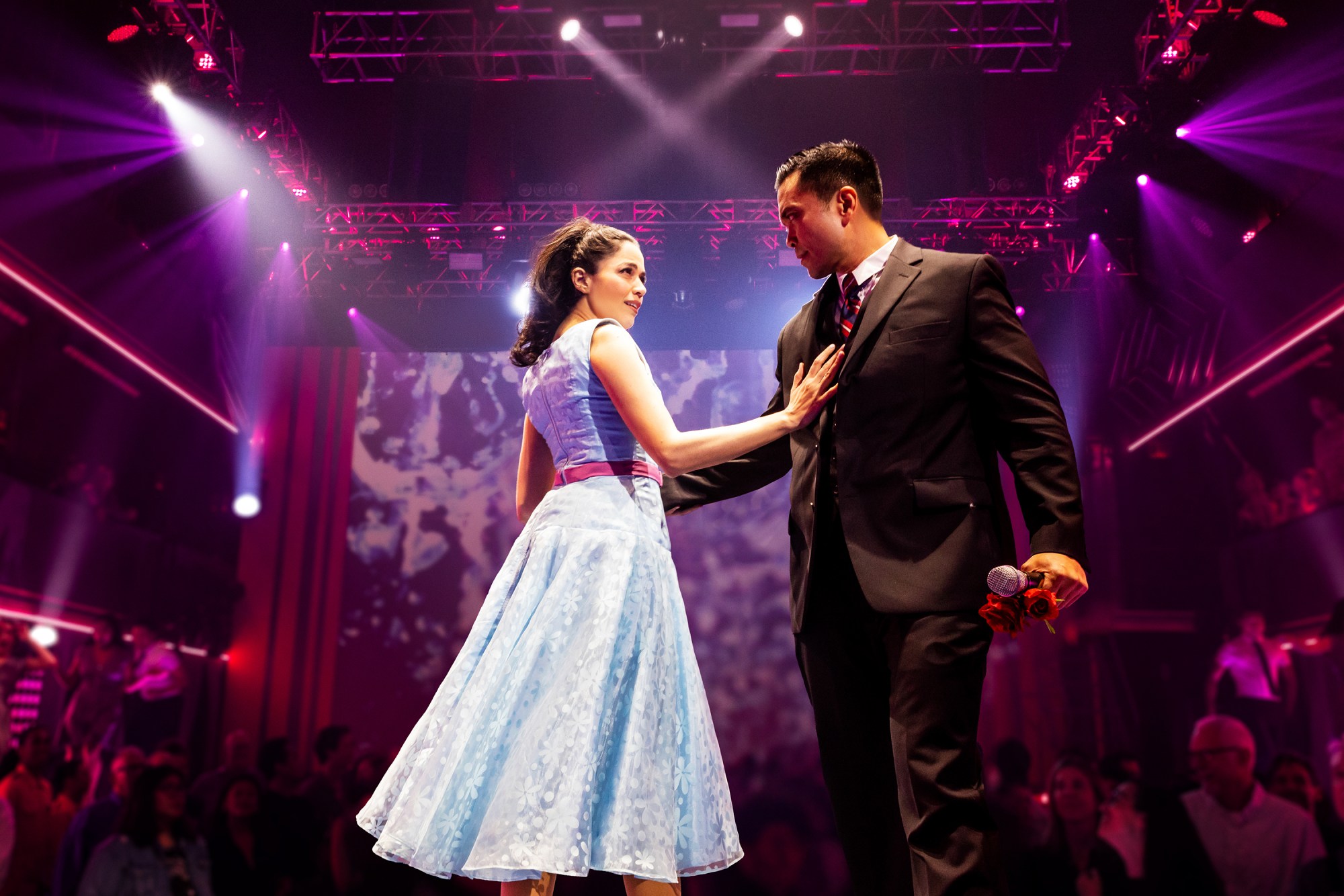
- Industry
“Here Lies Love” Brings Back Martial Law Memories to Broadway
I still remember the day when Martial Law was declared in the Philippines. My whole family was glued to the TV set when then-President Ferdinand Marcos sternly announced Proclamation No. 1081 as a way to impose military authority.
My dad was supposed to be traveling on a business trip that day. But nobody could get out of the country. It was as if life, suddenly, was at a standstill. Nobody knew what our future held.
Fast forward to the rallies and protests that started the People Power Revolution that eventually toppled the Marcos regime in 1986.
Here Lies Love, the musical created by David Byrne, Golden Globe winner (Best Score – Motion Picture for Bernardo Bertolucci’s The Last Emperor) and English musician-record producer Fatboy Slim, is about the rise and fall of Imelda and Ferdinand Marcos and their intertwined fate with opposition leader Benigno “Ninoy” Aquino.
The title of the show is derived from former First Lady Imelda Marcos’ words as recorded in Ramona Diaz’s documentary Imelda, which won the 2004 Sundance Film Festival Cinematography Award and prizes in other film festivals. Imelda, during a visit to her husband Ferdinand’s embalmed body, said that she would like the phrase “Here Lies Love” to be inscribed on her tombstone.
Alex Timbers, the talent behind the Broadway adaptations of such films as Beetlejuice, Moulin Rouge! and Rocky, directs Here Lies Love, which is making history as the first-ever all-Filipino cast production on the Great White Way.
The ensemble is led by How to Get Away with Murder and Fire Island actor Conrad Ricamora (who portrays Ninoy Aquino), Sex and the City and Hitch actor Jose Llana (Ferdinand Marcos), In the Heights and Aladdin actress Arielle Jacobs (Imelda Marcos), Easter Sunday and NCIS actress Melody Butiu (Estrella) and Yellow Rose and Pretty Little Liars: Original Sin singer-actress Lea Salonga (Aurora Aquino).
The show, now in preview performances at the Broadway Theater, is produced by several Filipino American talents, including actor-comedian Jo Koy, Oscar and Grammy winner and Golden Globe nominee H.E.R., Salonga, and Respect and Lingua Franca costume designer Clint Ramos.
I first saw the disco-driven musical Here Lies Love in its 2013 Off-Broadway staging at The Public Theater with Ruthie Ann Miles as Imelda. Presented in a club setting where the audience on the dance floor moved with the revolving stage and actors, Here Lies Love was a fully immersive experience. As an audience member, I was part of the rally or disco scenes.
I recently went to see the show again in New York during one of its previews (the musical officially opens on July 20).
With a bigger venue, the Broadway Theater, the musical’s club atmosphere, and immersive staging are kept but on a grander scale. It still felt intimate.
A number of innovations were implemented, like adding a finale song, the line dancing of the audience both on the floor and the mezzanine levels, and the more prominent role of the DJ (Moses Villarama).
In my Zoom talk with Tony award-winning costume designer Ramos, who is also a creative consultant, I asked him what other changes they made from the original Off-Broadway production held a decade ago.
He said, “We really looked at when we first did this show. The world was different then, in both countries.
“This time, we really wanted to highlight what had been there before. Number one was the complex relationship between the United States and the Philippines, this post-colonial relationship that we have with the US. We really wanted to make sure that we represented the way Filipinos think about themselves and their politics.
“It was important that we honor history. Although it is a piece of art, the musical is based on historical events. We wanted to make sure that we didn’t contribute to what is happening to democracies all over the world, which is: the erosion of democracy through misinformation.”
“We really studied each scene and looked for opportunities where we could punctuate those. We wanted to be responsible and present human beings as human beings.”

